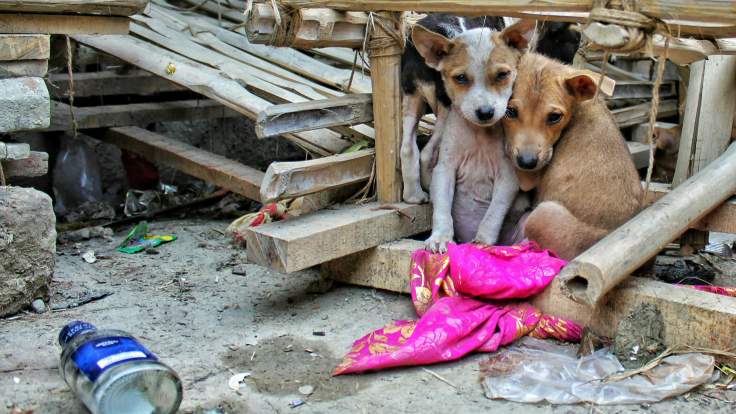Beware Of Rabies When Travelling To These Places: British Woman Dies From Light Dog Scratch In Morocco
Officials remind Brits to avoid coming into contact with animals when travelling abroad

Petting a dog while on holiday may seem like a wholesome act, but tourists should be cautious about whether the place they're in has a high-risk of rabies as even the tiniest cut from an infected animal can kill.
As is the unfortunate case of a Yorkshire woman who was scratched while stroking a dog in Morocco.
59-year-old Yvonne Ford died in a Sheffield hospital on 11 June after contracting rabies from the Moroccan dog back in February.
Despite being infected four months prior, she only started displaying symptoms later on at two weeks prior her demise. Rabies are almost always fatal once symptoms present themself, according to the NHS.
While leading medical advice for Brits who have been scratched or bitten by an animal while abroad is to seek immediate medical attention no matter where they are, there are some places where the risk of encountering rabies is much higher.
Here are some places where you should take extra care when interacting with animals, as well as information about rabies and what to do if you think you may have contracted it.
Asia And Africa Pose Highest Risk
Data from the World Health Organisation (WHO) shows countries in Asia and Africa pose the highest risk for contracting dog-mediated rabies.
Up to 95 percent of human rabies deaths occur in these continents, mainly in rural communities where dog rabies is poorly controlled and access to post-exposure prophylaxis (PEP) is limited or non-existent.
Only mammals can spread rabies, with dogs causing 99 percent of human rabies deaths, according to the WHO. However, rabies can be contracted and spread by any mammal, including bats, raccoons and foxes.
Parts of Eastern Europe, South America, and Central America are also labelled as either moderate risk or high risk countries.
Travellers can check the level of risk rabies pose in the country they're going to via the country information page on the National Travel Health Network and Centre's website, Travel Health Pro.
Risk Of Contracting Rabies Within The UK Is Incredibly Low
This most recent case of rabies poses no risk to the wider public since there are no documented cases of rabies passing between humans in the UK, the UK Health Security Agency (UKHSA) assures Brits.
Furthermore, the only animals that a rabies-like virus may circulate in are some species of bats. The UKHSA said that the last case of human rabies acquired from an animal other than a bat was in 1902.
However, UKHSA reminds Brits to be careful when travelling to rabies-affected countries. Travel advice includes consulting a travel health professional to find out if a vaccination is recommended, and avoiding contact with animals as much as possible once overseas.
Six cases of human rabies contracted abroad were recorded in the UK between 2000 and 2024.
Causes, Symptoms, And Medical Advice
Humans most commonly get rabies through animal bites and scratches. However, rabies can also be contracted if an infected animal licks a person's eyes, nose, or mouth, or if they lick someone's pre-existing wound.
Rabies affects the brain and nervous system. Early symptoms may be nonspecific but include fever, headache and discomfort at the bite or scratch site. As the infection develops, more serious symptoms involve muscle spasms, confusion, and difficulty swallowing. Symptoms typically present themselves after three to 12 weeks of a person being infected.
While rabies is nearly always fatal once symptoms appear, it can be prevented if treated right away.
'If you are bitten, scratched or licked by an animal in a country where rabies is found then you should wash the wound or site of exposure with plenty of soap and water and seek medical advice without delay in order to get post-exposure treatment to prevent rabies,' said Dr Katherine Russell, Head of Emerging Infections and Zoonoses at UKHSA.
Brits who've come into risk of contracting rabies should also contact their local GP once back in the UK, even if they've received post exposure treatment abroad.
© Copyright IBTimes 2025. All rights reserved.






















